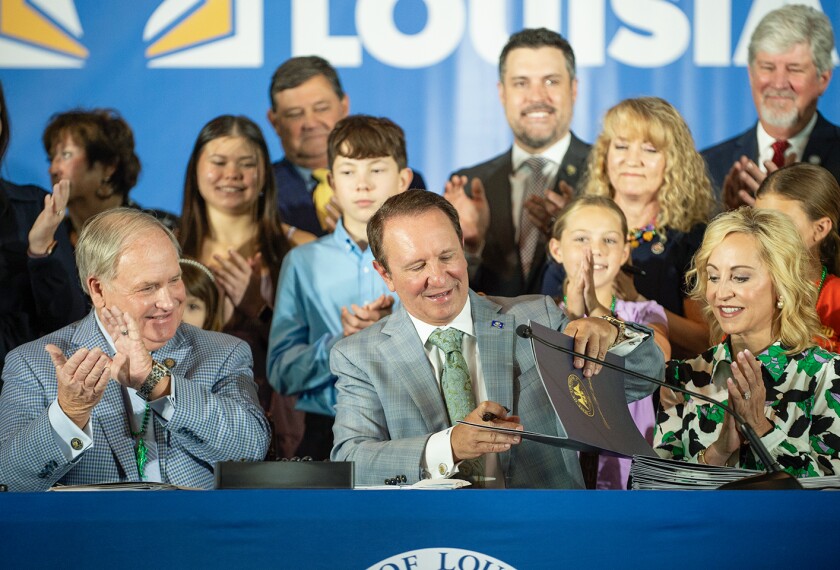The U.S. Supreme Court will hear arguments next month in a case filed by two New Mexico school districts that object to the way the U.S. secretary of education calculates which districts are eligible to receive impact aid for educating children who live on federal land or near federal installations.
In Zuni Public School District No. 89 v. Department of Education (Case No. 05-1508), the districts argue that the secretary violates a federal statute for determining which states can consider federal impact aid when allocating operating funds to districts. Both districts contain Indian reservation land.
The federal formula hinges on whether states have “equalized” funding systems, meaning that the disparity in per-pupil revenue between their wealthiest and poorest districts, excluding the top and bottom 5 percent, is less than 25 percent. A state with an equalized system can reduce funding to a district by the amount of the federal impact aid the district receives.
The districts contend that the secretary’s formula for determining therichest and poorest school systems contains an extraneous step that eliminates districts based on their attendance numbers. As a result, they say, 23 of the 89 districts in the state were eliminated even before the disparity test was applied, and the department unfairly labeled New Mexico as an equalized state.
According to the districts, the disparity between the richest and poorest districts is more than 25 percent when calculated by per-pupil revenues alone. By their calculation, only 10 school systems, should have been eliminated from the two ends of the scale.
Seeking Compensation
In its initial brief in the Supreme Court, the Bush administration defended the department’s procedure, saying that although the impact-aid statute sets forth the parameters for calculating state public education or revenues under the disparity test, the law does not contain a specific implementation of the disparity test.
The case is scheduled for arguments on Jan. 10.
Read the related story,
The case comes against the backdrop of a push by Western states on the compensation issue. In Utah, educators are hoping that lawmakers will use the reauthorization of the No Child Left Behind Act to change the definition of districts that can be compensated for having significant proportions of federal land within their boundaries.
Patti Harrington, Utah’s state superintendent of public instruction, sent a letter to U.S. Rep. Rob Bishop, R-Utah, last month detailing her concerns about the No Child Left Behind Act, including the state’s loss of revenue from federal property.
“Utah recommends language such as: ‘When 50 percent or more of a school district’s land is owned by the federal government, this becomes an additional qualifier for impact-aid funding,’ ” she wrote.




